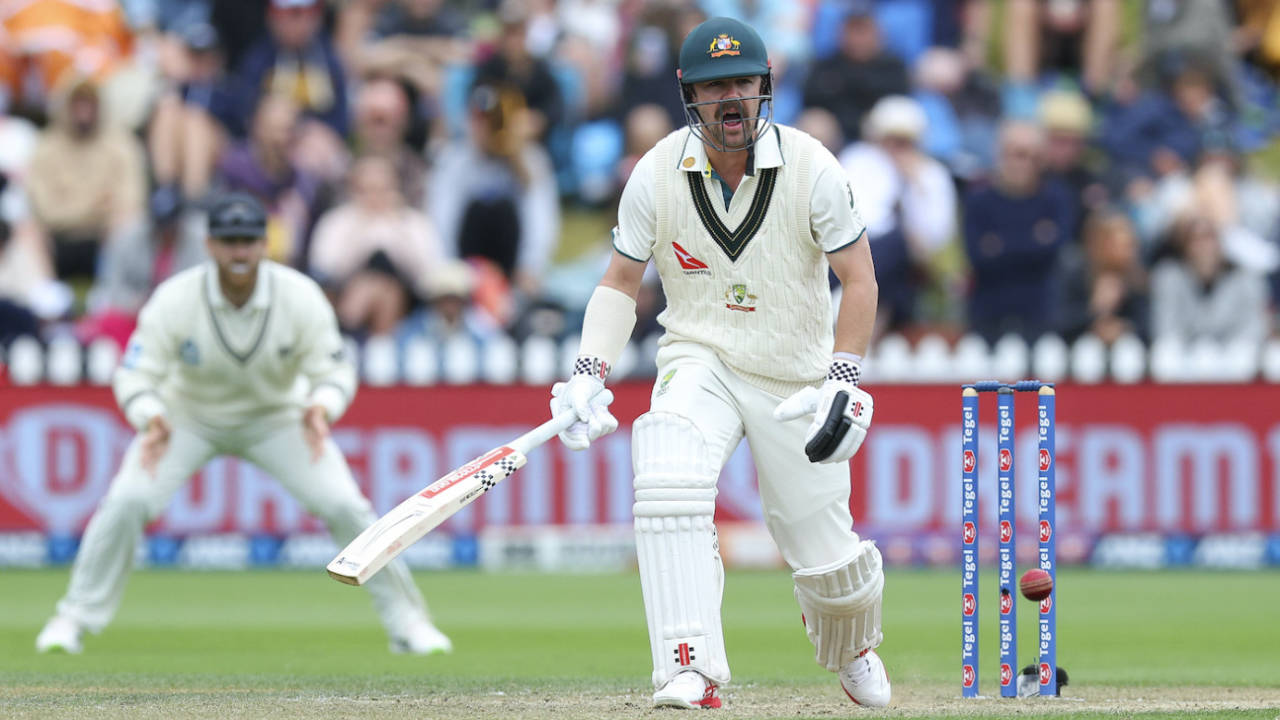Talk of
Travis Head opening the batting for Australia in Test cricket indicates the uncertain nature of the position rather than being a reflection of the player's suitability to handle the new ball.
If Australia possessed an obvious opening replacement for David Warner then
Steven Smith wouldn't have occupied the position last season. Smith is a very capable No. 4 and that is his best position, so an opponent should welcome him facing the new ball.
Head opening in Test cricket is based on his unbridled success facing the new ball in both 50-over and T20 cricket. There's no doubt Head, with his ultra-aggressive style, is the ideal player to open in the two short forms of the game. However, Test cricket is an entirely different proposition.
Head's promotion to open in Test cricket should be seen as either an extremely desperate ploy or an extraordinarily adventurous move. The desperation involves Head's penchant for adopting an all-out-attack approach, which can unravel in a Test match. The adventurous part involves his aggression unsettling the opposition field placings and thus creating an advantage for his own team.
The difference between the short forms of the game and Test cricket apply with both field placings and use of the bowlers. The fielding side employing extra catching fielders and being able to unleash a preferred bowler for longer periods makes opening much tougher in Test cricket.
The other important aspect is Head's approach to batting. His decision to mount a full-blown attack is in part to camouflage any weakness in his batting. If the opposing bowlers are bluffed into countering with an economical rather than a wicket-taking plan, then Head's ploy is successful.
If Head is satisfied that an all-out attack is the way for him to bat, that boosts his confidence. However, a few cheap dismissals can see a player's confidence dwindle quickly.
One big flaw in the argument for Head to open in Test cricket is the opposition he'll face. If it were a lesser opponent it might have some merit but a strong Indian attack will be hard to bluff.
Any move to open with Head that is designed to unsettle Jasprit Bumrah is asking a lot of the batter. Bumrah, and to a lesser extent Mohammad Siraj, are unlikely to be battered into altering their attacking mentality.
Head's promotion to open in Test cricket should be seen as either an extremely desperate ploy or an extraordinarily adventurous move
As well as fine fast bowlers, Head is also vulnerable against good offspin bowling. The wily R Ashwin is unlikely to be panicked by an opponent's ultra-aggressive approach.
The argument could be mounted that opening with Head means he'd be more settled facing Ashwin with some runs on the board. On the other hand, a smart opposing captain can utilise the offspinner with a newish ball.
Amongst any argument to use Head as a Test match opener, there's a compelling counterpoint.
Former Australian captain Tim Paine was asked about Smith as an opener. He replied candidly: "As an opposition player I want him at the top of the order because that gives me the best chance of getting him out." The same logic applies to Head as an opener in Test cricket.
In choosing an opening pair for the Test series, Australia need to be acutely aware of India's attacking intentions under Rohit Sharma's captaincy. It was made abundantly clear in the
second Test against Bangladesh that India will seek victory at every opportunity under Rohit.
That makes a good start in Tests against India a priority for Australia.
Another issue clouding Australia's choice of opener against India is the concern over
Cameron Green's back injury. The idea behind Smith opening last season was to fit both allrounders, Green and Mitch Marsh, into the team.
If Green can only bat because of his back issue and Marsh continues to be questionable as a bowler because of potential injury, then it severely diminishes their allrounder status.
There's no doubt Australia desperately needs to find a capable Test opener, but Head is not the solution to the problem.
Former Australia captain Ian Chappell is a columnist

